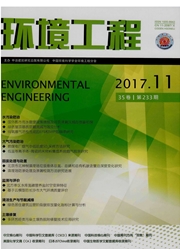

 中文摘要:
中文摘要:
随着化学化工及其相关产业的高速发展,高浓度难降解有机废水日益增多,其新型适用的处理工艺技术研发具有迫切性和必要性。就现有废水处理工艺技术而言,生物处理工艺具有彻底矿化降解污染物、处理费用低、二次污染风险低等优点,但对浓度高、毒性大及疏水性强的有机污染物的处理受到限制。近期发展的两相分配生物反应器(two-phase partitioning bioreactor,即TPPB)法则在高浓度难降解有机污水处理中显现出显著的应用效果。综述了TPPB的工作原理、研究现状以及存在的问题,并展望了TPPB技术的应用前景。
 英文摘要:
英文摘要:
With the rapid development of industry,the refractory organic wastewater with high concentration is also increasing,the necessity of new type applicable wastewater treatment technologies need to be reached.Based on existing technology,the biological treatment process has virtues with a complete mineralization of the degradation of pollutants,saving costs of disposal,and low risk of secondary pollution.However,for high concentrations,toxic and highly hydrophobic organic pollutants,the traditional biological treatment process has been limited in the application.At present,the domestic and overseas researches show that the distribution of two phase partitioning bioreactor(TPPB) method of sewage treatment proves to be significant in the application.Hence,this paper describes the working principle of TPPB,its state-of-art and problems;and the applications of the technology of TPPB were prospected.
 同期刊论文项目
同期刊论文项目
 同项目期刊论文
同项目期刊论文
 期刊信息
期刊信息
